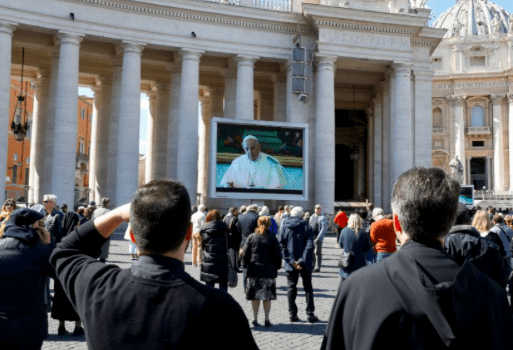Religious clubs are some of the largest societies at the University of Sydney. Yet with COVID-19 restrictions disrupting most social interactions, they’ve been forced to come together behind screens to practice their faith.
Rituals like prayer, sacred ceremonies, and large communal gatherings hold deep significance for religious groups. For many believers, these practices are intricately tied to social and cultural identity. So in a time when the very fibre of our lives is shifting, it is particularly difficult for religious adherents to adjust.
How are the biggest faith groups on campus helping members through the pandemic?
Evangelical Union (EU)
With community or “fellowship” a fundamental part of Christian beliefs, many of the EU’s practices rely largely on interpersonal relationships.
“We seek to regularly gather together in order to encourage one another… and worship God together,” President Jacob shared. “This communal aspect has been particularly difficult to replicate in online formats.”
For many members, staying part of this community has been an essential part of coping with the crisis. With activities such as Bible studies, one-to-ones, prayer meetings, and public talks continuing on Zoom, the EU has sought to provide avenues for believers to express themselves and receive emotional support.
Jacob also spoke of the hope and certainty Christians can hold onto during the pandemic. The society has been reminding members that “we know our sins have been forgiven, and we have a glorious eternal future with God awaiting us, where there will be no more crying, hurt, sickness, pain or death.”
The President encouraged students to seek out answers to their longings during the virus. “We’d love to welcome you into our community, no matter your background or the beliefs you may have – we think Jesus is for everybody!”
Australasian Union of Jewish Students (AUJS)
For Jews, communal prayers and holidays have been particularly hard to practice. For example, recently Jewish students celebrated Passover (or Pesach), one of the most important events in the Jewish calendar. As a festival which revolves around spending time with family and sharing meals, this year has proven particularly difficult.
“A large part of the Jewish faith is community,” said AUJS Education Officer Timothy. “Keeping those connections strong has been a challenge when you are at times only a voice at the other end of the phone or an image on a screen.”
However, Timothy also noted that adherents had been “getting creative” within the restrictions to uphold these important rituals. He felt that religious clubs may have an easier time transitioning online, being identity and community-based rather than activity-based. AUJS has been keeping in touch with members through social media and video conferencing platforms, and creating video messages to encourage solidarity in believers.
Timothy similarly felt that our relationships with others are most important to cultivate during the virus.
“If you are ever feeling isolated, make sure you reach out,” he encouraged. ‘We are all in this together.”
Sydney University Catholic Society (CathSoc)
President Teressa spoke to the emotional difficulty her society felt in cancelling weekly events. Rituals such as praying together, attending mass, and practicing acts of charity have been interrupted by social distancing rules.
“Though we have been running our regular events on Zoom, it’s just not the same as being in the presence of other people,” Teressa said. “We really had to trust that this was not the end, but only the beginning of a new mission for the Catholic Society.”
This new “mission” has largely taken place over Zoom, where the club has been running prayers, Bible studies, and social events. Executives have released daily Bible quotes and spiritual reflections over social media to provide hope and encouragement for members. The society has also started making food packs for homeless and elderly people.
Teressa was optimistic about the role CathSoc has played in supporting members during the virus.
“We have faith in knowing that [God] is transforming our lives and the world, to bring light, restoration and hope,” she explained. “Our community is a much-needed source of strength and accountability during these difficult times.”
Sydney University Muslim Student Association (SUMSA)
Adapting to virus restrictions has been “a unique process, to say the least,” said Executive member Alifa.
SUMSA has provided online spaces for adherents to come together during the crisis through WhatsApp threads, Zoom events, and sharing reflections on Facebook.
Alifa still saw the positive side of the pandemic’s effect, as it has forced the club to “think outside of the box” in their engagement with students. She expressed excitement about collaborations with the Muslim community both locally and abroad that could be facilitated in the online space.
Significantly, last Friday marked the first day of Ramadan, one of the five pillars of the Islamic faith. Typically the month is marked by believers coming together to break their fast and pray at the local mosque. This year, Ramadan celebrations are looking very different.
Alifa said while isolation will made it hard to feel like a community during the fast, Islam is unique in allowing worship to extend beyond the mosque and into the home.
“For many, the mosque is ‘home away from home.’ But as we stay indoors this Ramadan, our homes have become our ‘mosque away from the mosque.’”
* * *
Practicing beliefs has never been more difficult for religious clubs. But clearly for many members, it has also never been more important.
From behind screens, between walls, and across spatial divides, believers are still living out their faith.





